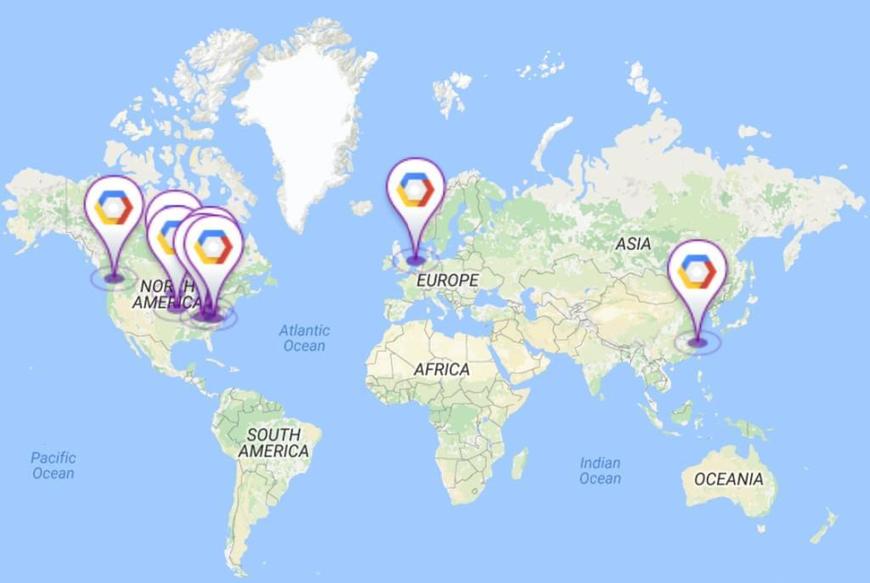AWS, Google Cloud and Azure Compared
Lucero compares three major cloud services, explaining the kinds of products that are available and the concepts underlying them.
Source: www.sitepoint.com
Major Differences Between Azure, AWS, and Google Cloud
| Feature/Aspect | AWS (Amazon Web Services) | Azure (Microsoft Azure) | Google Cloud Platform (GCP) |
|---|---|---|---|
| Market Share | Largest (approx. 33%) | Second (approx. 24%) | Third (approx. 11%) |
| Strengths | Scalability, versatility, global reach | Hybrid cloud, enterprise integration, big data | Advanced data analytics, AI/ML, sustainability |
| Pricing Model | Pay-as-you-go, no upfront costs, granular billing | Pay-as-you-go, per-minute billing, Enterprise Agreements | Pay-as-you-go, per-second billing, automatic sustained-use discounts |
| Compute Services | EC2 (Elastic Compute Cloud) | Virtual Machines, Scale Sets | Compute Engine |
| Storage Services | S3 (Simple Storage Service) | Azure Storage | Google Cloud Storage |
| Database Services | RDS, DynamoDB, Redshift | Azure SQL Database, Cosmos DB | Cloud SQL, BigQuery |
| Multi-Cloud Support | ECS/EKS for containers/K8s | Azure Arc for cross-cloud management | Anthos for Kubernetes/multi-cloud |
| Security | AWS IAM, VPC, Shield, Inspector | Azure Active Directory, Security Center, Defender | Cloud IAM, Cloud Armor, default encryption |
| Compliance | ISO 27001, HIPAA, FedRAMP, GDPR | ISO 27001, HIPAA, FedRAMP, GDPR | ISO 27001, HIPAA, FedRAMP, GDPR |
| Global Coverage | 77+ availability zones | 60+ regions | 33+ countries |
| Best Use Cases | Big data, e-commerce, IoT, media streaming | Hybrid cloud, enterprise databases, disaster recovery, gaming | Data analytics (BigQuery), AI/ML, sustainability, cloud-native apps |
| Integration | Broad third-party integration | Deep integration with Microsoft products | Strong open-source and container focus |
| Notable Customers | Netflix, Airbnb | Walmart, BMW | Twitter, PayPal |
Key Differences Summarized
-
AWS is the most mature and widely adopted, known for its scalability, breadth of services, and global infrastructure. It’s often favored by startups and enterprises needing robust, versatile solutions and global reach12.
-
Azure excels in hybrid cloud deployments and is a natural fit for businesses already invested in Microsoft products. Its enterprise agreements and integration with tools like Active Directory make it attractive to large organizations12.
-
Google Cloud stands out for advanced analytics (BigQuery), AI/ML capabilities, and sustainability initiatives. Its pricing is straightforward with automatic discounts, and it’s a top choice for data-driven and cloud-native applications12.

